My first session of the day was called How Effective Teachers Differentiate Their Classrooms. The presenters were Harry and Rosemary Wong (Yes...THE Harry & Rosemary Wong who wrote The First Days of School)
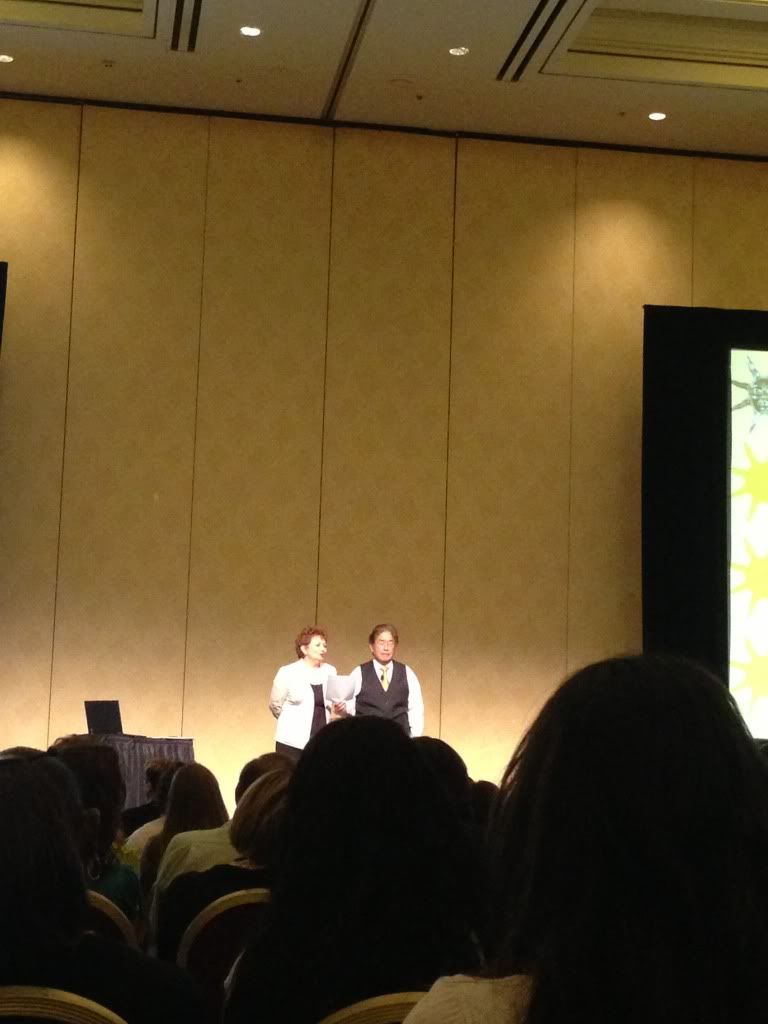 |
| The Wongs |
Their session was amazing. They talked about stuff from the book, had great video clips of how teachers actually implement procedures in a classroom, and they even told us about their new book that they have coming out in the Fall that will be all about classroom management. Here are some pictures from their presentation:
My second session of the day wasn't as amazing as the Wong's session, but I did come away from it with some really good insights. The session was called Using Student Learning Objectives to Measure and Promote Student Growth. The session talked alot about choosing appropriate assessments (based on validity, quality, kid friendly language, etc). For example... on a scale of 1 to 4 with 1 being the highest score for validity, state standardized tests would rank a 1 and a teacher constructed assessment would be a 4. We also learned about using beginning of the year assessments as a baseline for the growth we want to see in our students and how we as teachers need to construct SMART goals (specific teacher behaviors) to help our students reach their Student Learning Objectives (SLOs). For example, a teacher could set a SMART goal related to a vocabulary/phonics SLO that says "I will incorporate Word Work into my Daily 5 for four out of five days each week." Alot of this session had to do with data analysis which I think is why I found it a bit on the dry side, because lets face it..there really isn't any way to make discussing student data analysis all that fun and super interesting. But like I said, I got alot of good info out of the session so I was glad I attended.
My third and final session of the day (usually there would be 4 sessions a day but the Wong session was 3 hours so it took up the entire morning half of the conference day) was about Problem Based Learning. The first thing the presenter made sure we understood was that there is a difference between Problem Based Learning and Project Based Learning (which I am also attending a session on on Thursday). Problem Based Learning has an undetermined outcome that can change as the work progresses. Project Based Learning has a determined outcome. In the demo lesson we got about the Civil War, the students receive an "anticipation guide" that has statements that preview content, highlights important vocabulary, and helps to check prior knowledge through discussion. What is VERY important though, is that when you go over the anticipation guide with students, that you do not confirm/deny/correct student statements in regards to the information in the guide. Also, because you can check prior knowledge with the guide, you can use it as your pre-assessment for your unit of study. After you use anticipation guide, the students are broken into small groups (3 to 5 students) and presented with their situation or "problem". After they get their problem, students use a Need to Know Board to determine what facts they already know, and the things they can make assumptions about based on the facts they know and the information in their situation/problem sheet. Here is what a Need to Know Board (NTKB) looks like:
As you can see, a NTKB is very similar to a KWL chart. Once students have their facts and assumptions (you can switch this word out with other words like hunches, opinions, guesses, etc), they then come up with the questions they want/need answered in order to come up with a solution to their problem. They also fill out the fourth column which is where they need to list resources they need in order to find answers to their question/solve their problem. I loaded the document for the NTKB on my Google drive, and if you'd like a copy of it, click here to download it. In the end, once students all complete their work (have solutions to their problems), you have the groups come back as a whole class and share their information.
I really had a great day today at the conference and learned soooo much that I cannot wait to implement into my classroom. Now I'm off to relax before I return to the conference tomorrow. I'll be sure to post again tomorrow evening as well. As a preview, here are the sessions I'm going to tomorrow:
- Math Instruction and Interventions: Turn Strugglers into Success Stories
- Support for Struggling Readers
- Raising Rigor with Questioning
- Anchor Activities & Tiering
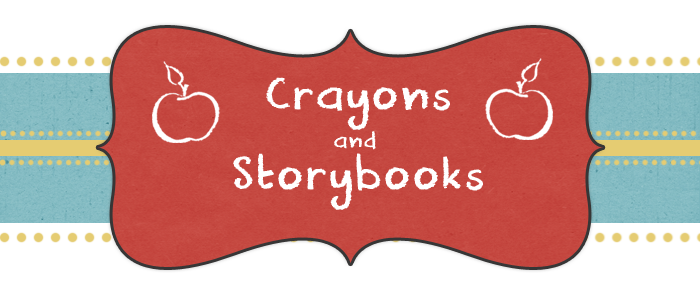

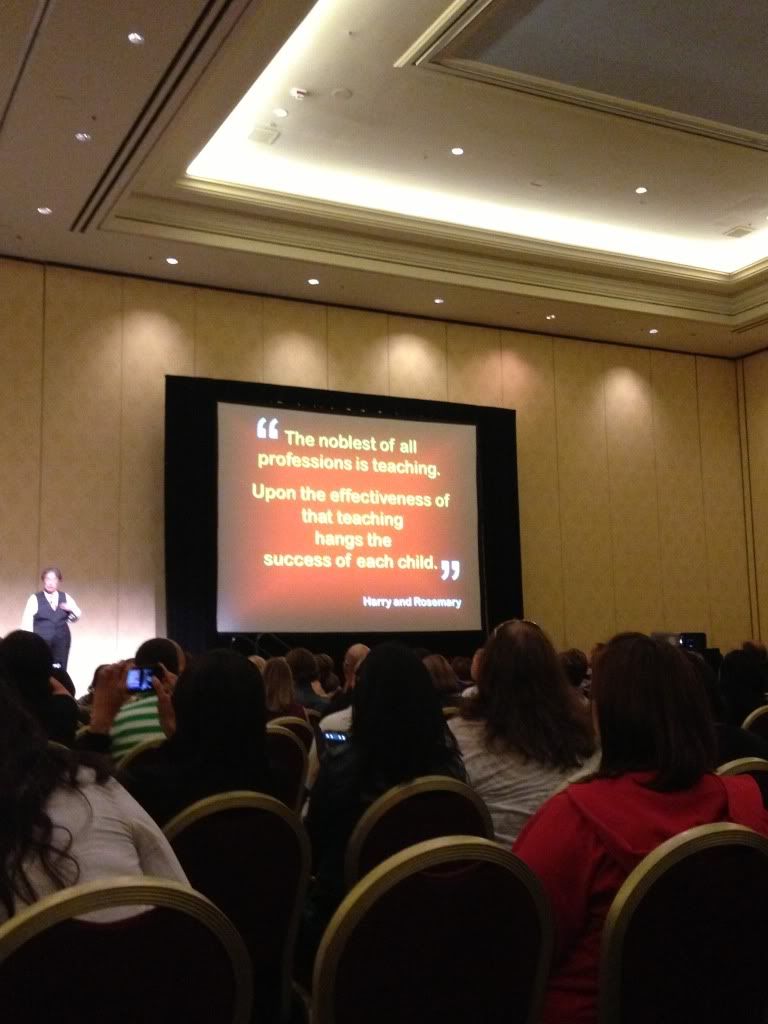
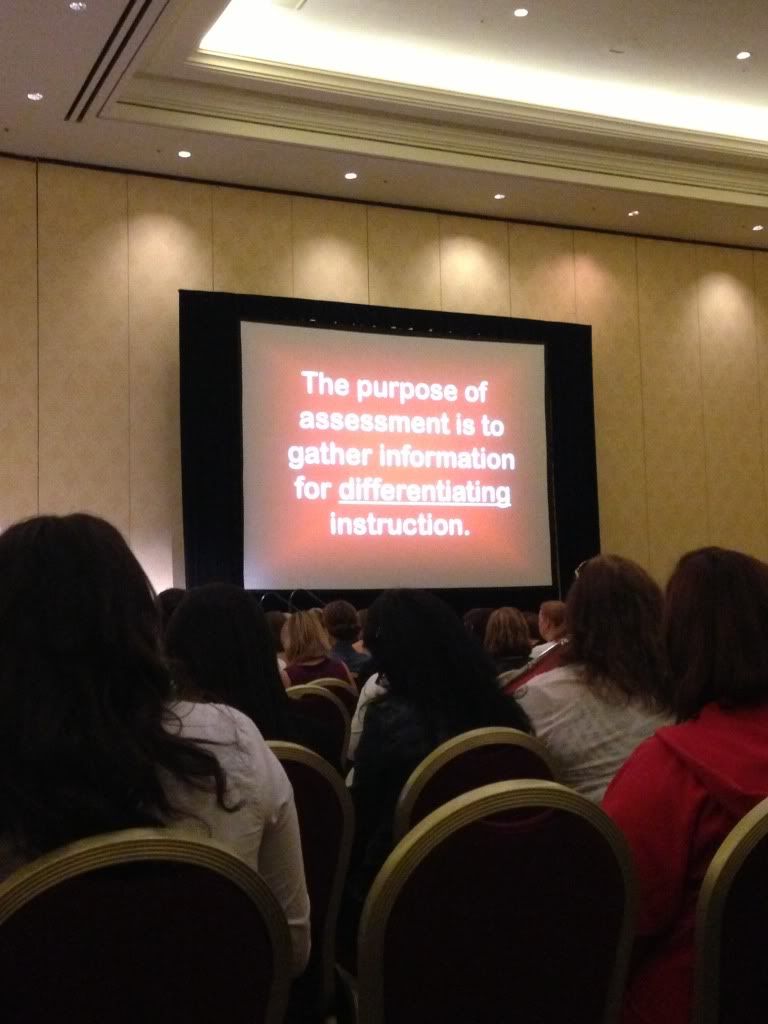
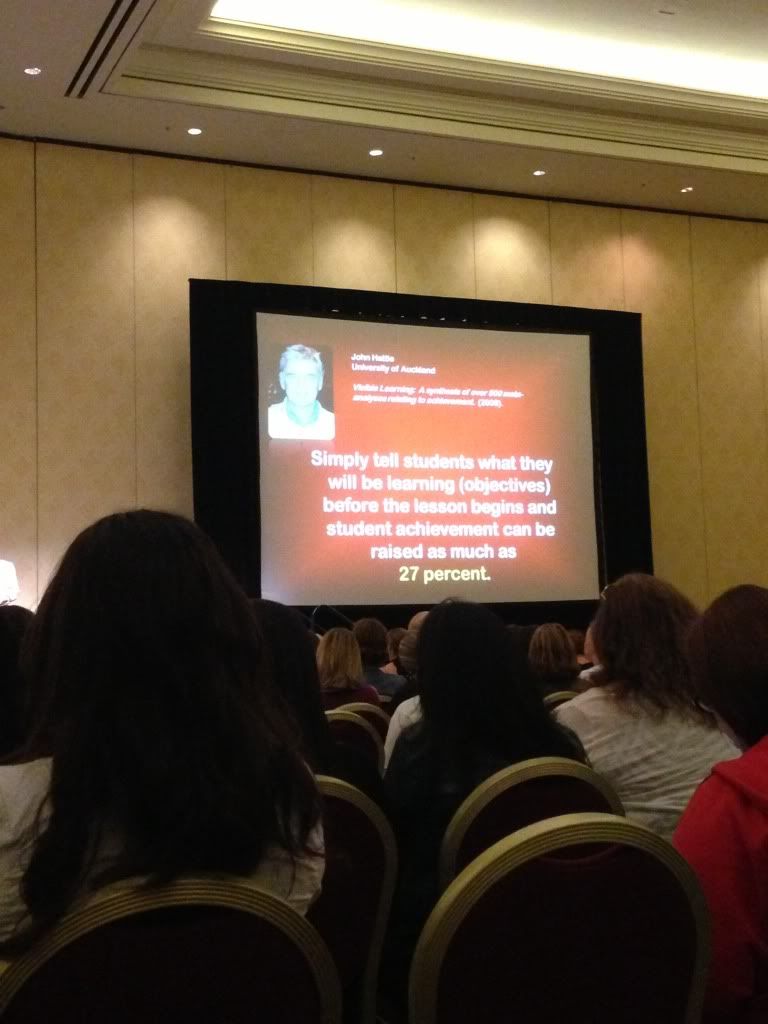
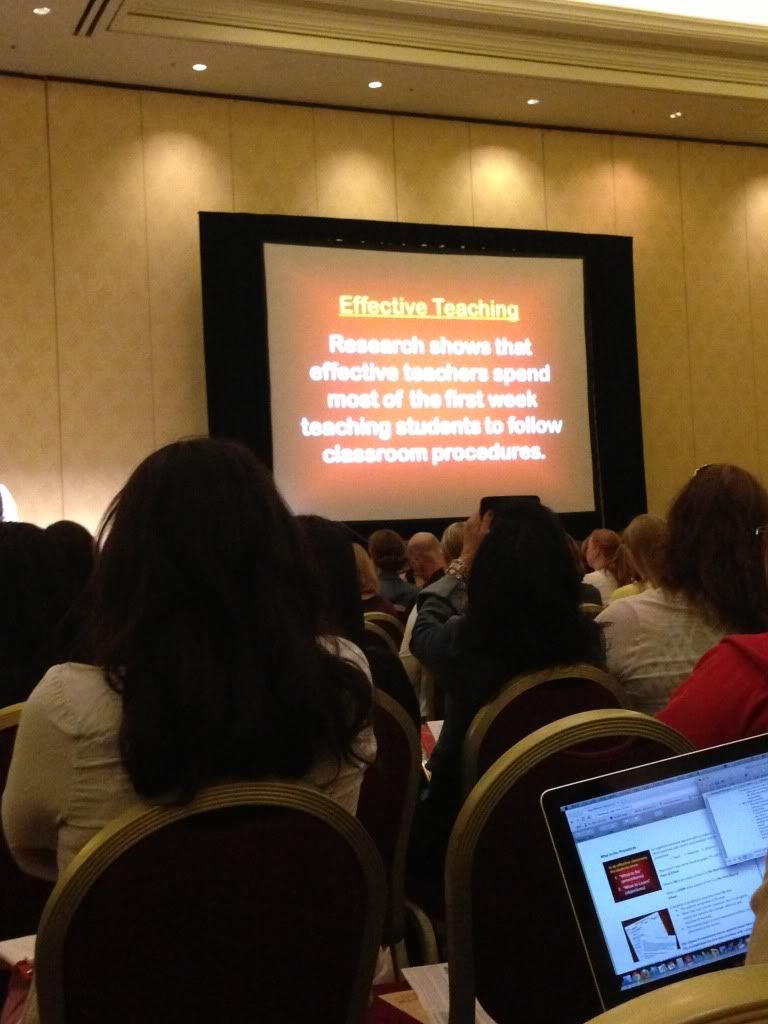
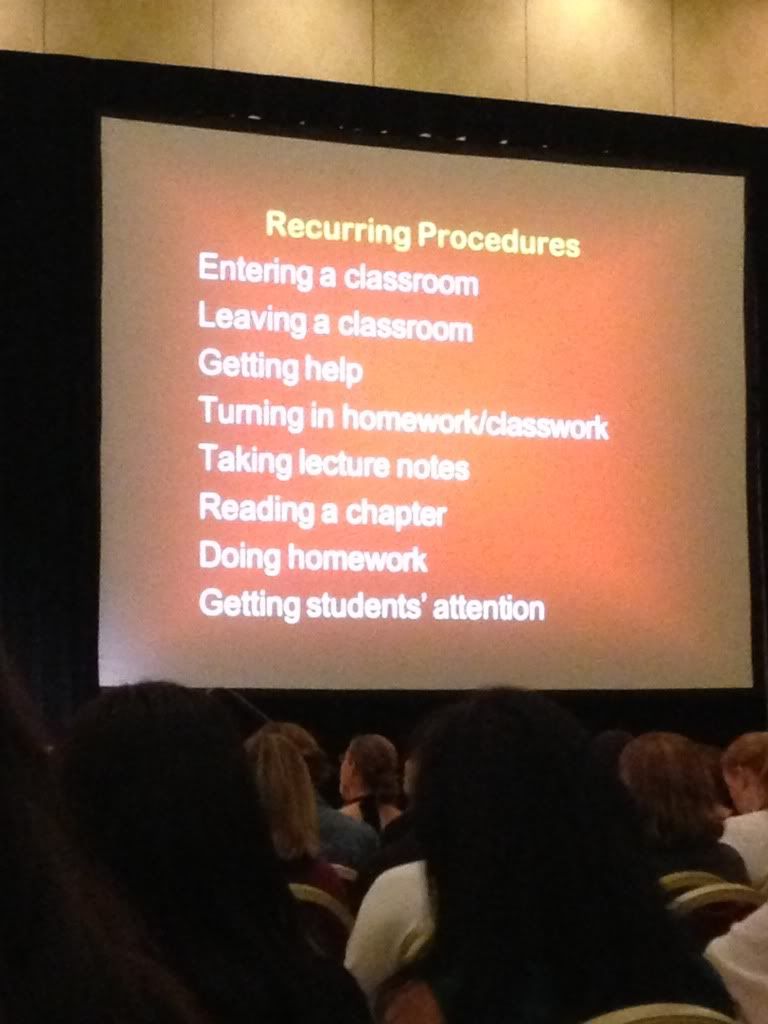


No comments:
Post a Comment